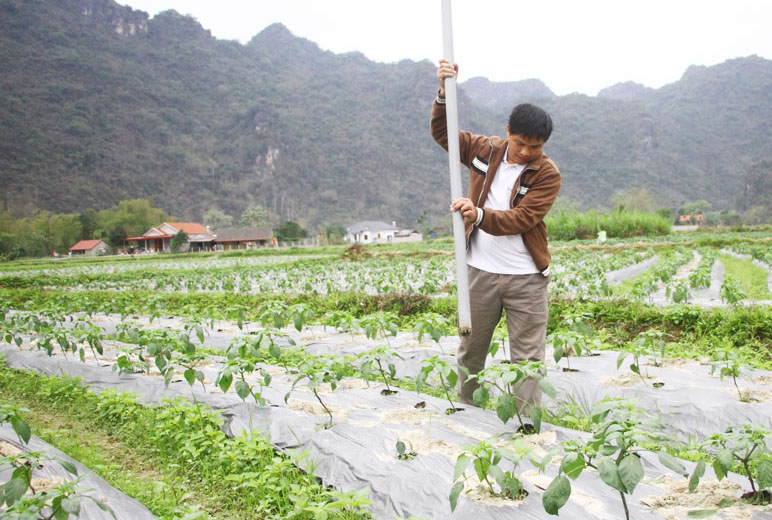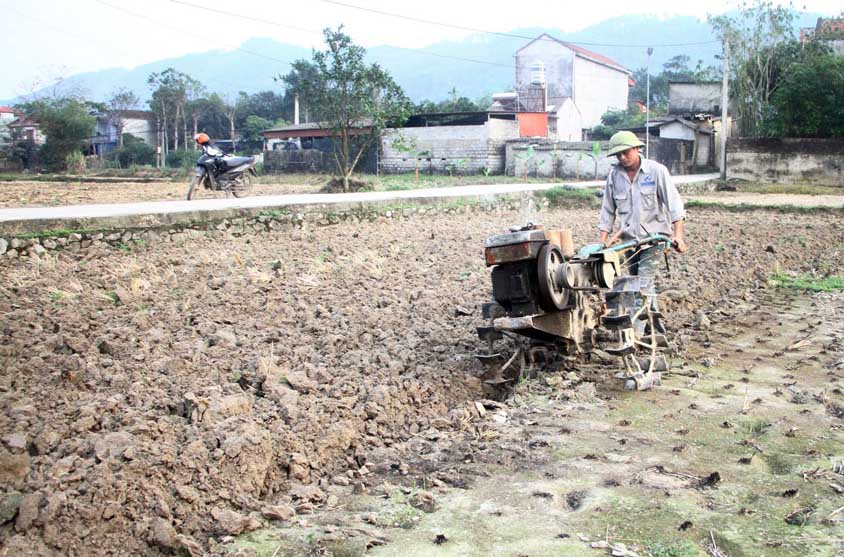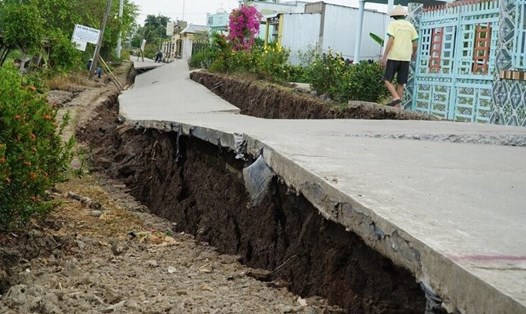Previously, Mr. Luong Van Sen's family in Binh Long commune ( Vo Nhai) had 7 sao of rice fields, sowing 2 rice crops and 1 crop per year, but for more than 2 years due to the lack of water during the dry season, he had to change the crop structure.
"Pumping water from the stream is just a temporary solution and is expensive. Therefore, after researching, I decided to grow cucumbers. Cantaloupe plants usually need less water, can withstand drought, and have stable economic value," said Mr. Sen.
Not only cucumbers, in this land that is often prone to drought, many other crops such as chili, green beans, and soybeans are also planted by people to replace part of the rice crop in the spring and winter crops, which are the peak period of water shortage.

In the spring crop of 2024, the whole Binh Long commune has nearly 10 hectares of cucumbers, an increase of more than 3 hectares compared to the previous year. Other drought-tolerant crops such as chili and green beans have all increased by more than 50%.
According to local people, crops that are drought-tolerant and have much higher economic value than rice, currently 1 sao of cucumber- performing well with an average profit of 8-10 million VND, with sweet chili trees over 10 million VND/sao... about 3-4 times higher than rice on the same land area.
Mr. Tran Quang Hung - Chairman of Binh Long Commune People's Committee, said that in the face of the increasingly complicated developments of drought, the local government has proactively researched and let people learn about effective crop conversion models in Yen The district (Bac Giang).
"The locality has proactively connected with businesses and cooperatives in Yen The district to support people to deploy models and cover products for the people", Mr. Hung informed.
According to the commune leader, when participating in the model, people will be supported by cooperatives and enterprises on the other side of the province to pay late for seeds and agricultural supplies; receive training and direct guidance on planting techniques and care for new crops. Therefore, people are confident in converting crops.
Vo Nhai is the only mountainous district in Thai Nguyen province with complex terrain, facing many difficulties in investing in the construction of irrigation works, so many areas of agricultural land in Vo Nhai district currently depend entirely on rainwater and water from mountain streams.

With the solution of crop restructuring, the concern about agricultural production in the arid land of Vo Nhai in recent years is gradually being resolved.
According to the Department of Agriculture and Environment of Vo Nhai district, specialized agencies have increased water resource regulation in reservoirs and dams to serve production. At the same time, strengthen propaganda so that people can proactively and reasonably convert crops.
Rice is still the main crop in Vo Nhai, however, with rice fields that do not provide enough water, people have been switching to crops that can adapt to drought. For example, the area of corn in this year's spring crop has reached 2,700 hectares compared to 1,700 hectares of rice.









